Beijing blood donations drop
Updated: 2014-01-21 00:50
By Wang Qingyun (China Daily)
|
||||||||
Red Cross seeks more clout to set up collection points in city.
|
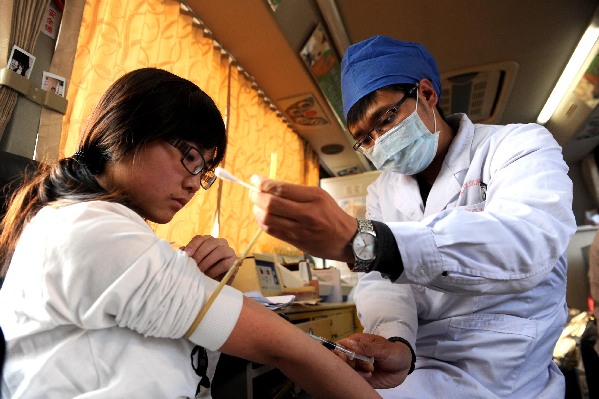 |
|
A woman donates blood in a converted vehicle in Beijing's Xidan neighborhood in April 2013. Provided to China Daily |
Blood donations in Beijing have been falling slightly for three consecutive years, and legislation is needed to ensure supplies, said Ge Hongwei, director of the testing department of the Beijing Red Cross Blood Center.
Ge did not specify the amount of blood donated, or by how much it had dropped in the past three years. But she emphasized that the city used more blood than any other city in the country in 2009, and the amount of blood used has been increasing by about 15 percent annually, widening the gap between supply and demand.
Part of the reason for the decrease was the Red Cross Society of China misuse of financial donations scandals in recent years when the public started questioning the credibility of non-profit organizations, including the blood centers, she said.
About 90 percent of the blood donated in Beijing is collected on the streets from random volunteers, making it important to set up more blood collecting stations on busy streets and railway stations to attract donations, she added.
However, it takes a lot of time and effort to get these facilities into the "hot spots".
"We need to negotiate with various parties, from the district government to state-owned enterprises, before they allow us to place our facilities in their precincts or properties. It's not easy to bargain with just a government order as our endorsement," she said.
This was a reference to the Measures on Blood Donation Management in Beijing, a government order issued in 2009, which asks government departments and other organizations to support the blood donation drive.
However, Ge said the order has not been well implemented as it's not authoritative enough.
There are 43 blood collecting stations scattered around the city, of which 42 are renovated coaches and recreational vehicles, as the centers do not have enough money to rent apartments for indoor blood donations, while there should be at least 92 stations working to guarantee the supply in 2014, according to Ge.
"The high real estate price in Beijing negates the possibility of buying apartments as blood collecting stations, and it's hard to rent a place in ‘hot spots' such as large shopping malls because we pay less than others," she said.
"We are negotiating with Beijing South Railway Station to see if they can let a stall to us, but the deal has not been finalized.
"Legislation by the People's Congress of the city won't settle the problem once and for all, but various organizations will attach more importance to the blood donation drive if the legislature shows its support to the cause of blood donation," she said.
Some hospitals have started optimizing their blood storage to control demand, said experts.
Huang Yuguang, chairman of the anesthesia department of Peking Union Medical College Hospital, said his hospital has been using techniques such as autologous (derived from the individual's body) blood transfusion and minimally invasive surgery to reduce the need to tap into its blood storage.
"The number of surgeries in the hospital last year increased by 12.79 percent over the year before, but the blood we used for transfusion has decreased," he said.
"Two thirds of the blood consumed by a hospital is consumed in its operation rooms. It's crucial to control the amount of blood used during surgery."
Yang Yuejin, vice-president of Fuwai Hospital, said his hospital also applies similar techniques and its annual consumption of blood has been stable in spite of the increasing number of surgeries.
"People from all over the country come to Beijing for treatment and surgery, and hospitals here should realize that blood is a precious resource that we can't afford to squander," he said.
However, not many other hospitals in Beijing are doing as well as the two hospitals, and the fact that hospitals are getting larger and there will be more hospitals in suburban Beijing imposes greater pressure on her work, Ge pointed out.

 Mount Sinabung erupts
Mount Sinabung erupts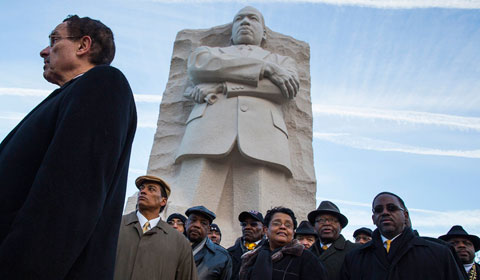
 Commemorations to honor Martin Luther King Jr.
Commemorations to honor Martin Luther King Jr.
 Thrillseeker enjoys the hammock in the sky
Thrillseeker enjoys the hammock in the sky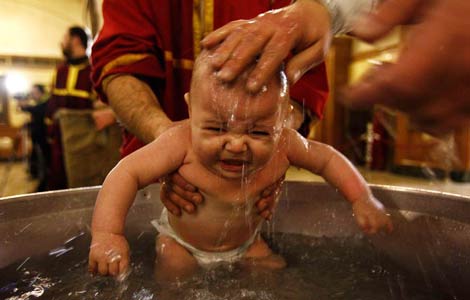
 Babies baptised during a mass ceremony
Babies baptised during a mass ceremony
 Winter cultural festival opens in Xinjiang
Winter cultural festival opens in Xinjiang
 Air travel to Taiwan continues to take off
Air travel to Taiwan continues to take off
 Panda cub in Washington makes her public debut
Panda cub in Washington makes her public debut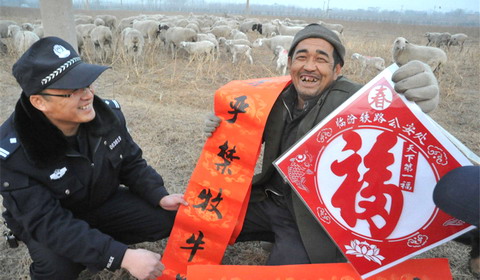
 Spring Festival preparations across China
Spring Festival preparations across China
Most Viewed
Editor's Picks

|

|

|
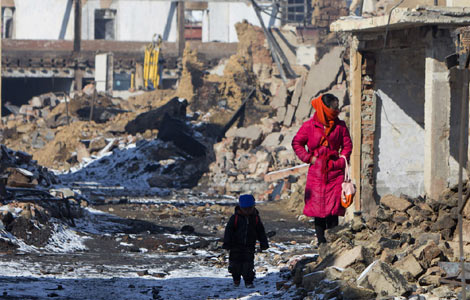
|

|

|
Today's Top News
Memorial hall reflects on Japan's aggression
Missionary wants US to get him home
Tech park visits Bay Area
US may be losing in globalization
Students develop apps for campus life
Three dead in China food poisoning
Beijing blood donations drop
US commemorates Martin Luther King Jr.
US Weekly

|

|





